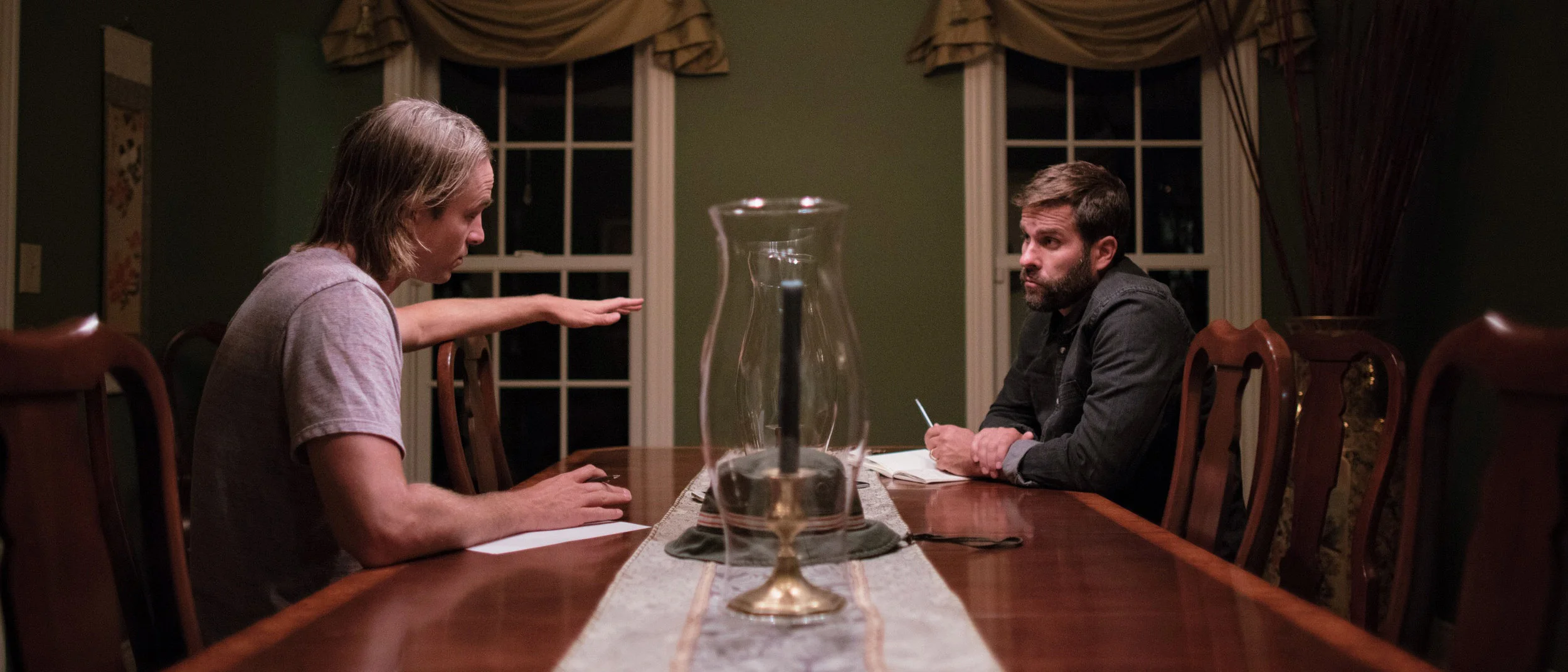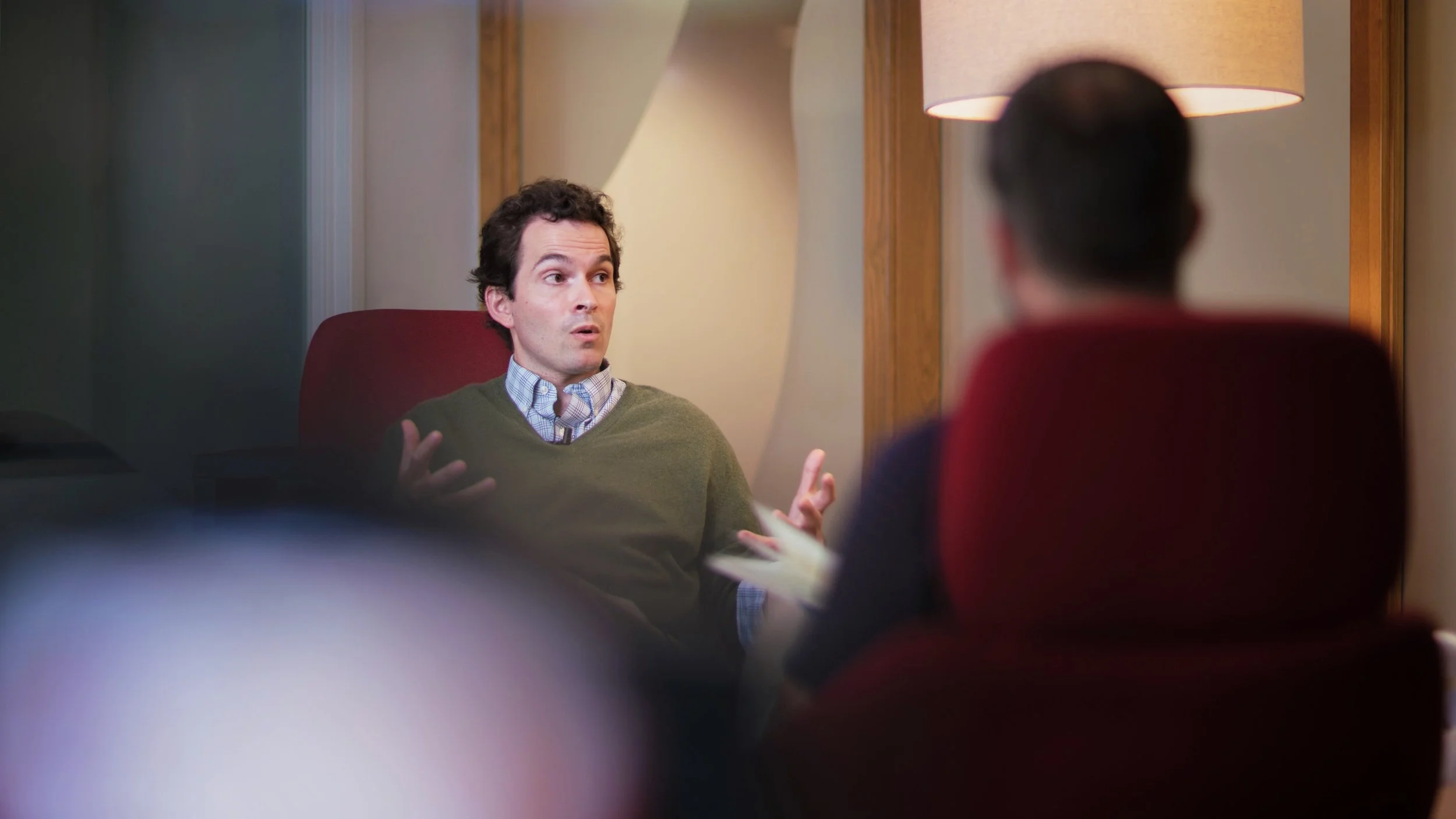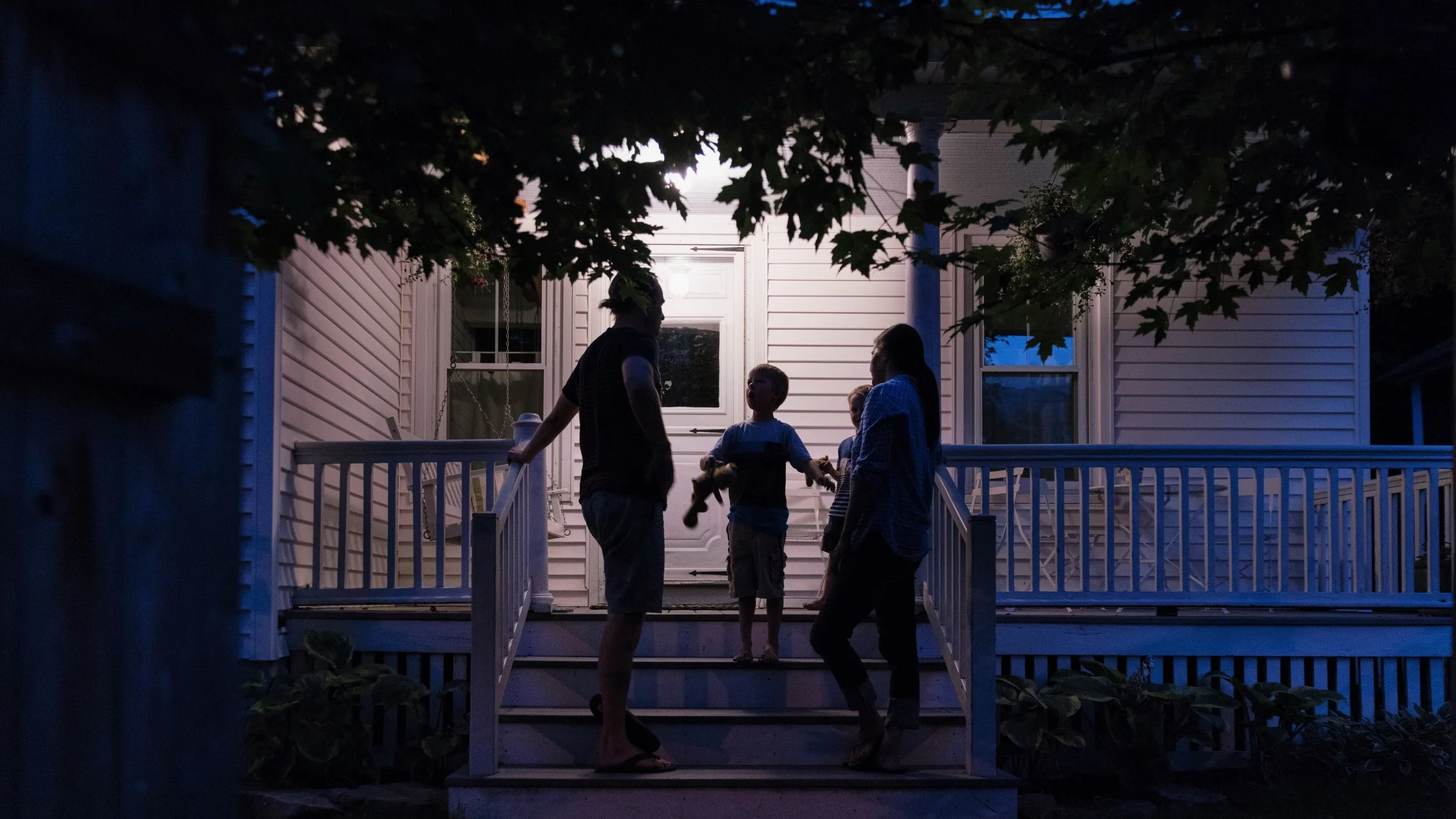
VLOGGIN' & BLOGGIN'
A Spiritual Hamster Wheel
I’m finding troubling things in my own approach to life/relationships and wondering if for too long I was driven by a deeper “If X then Y” understanding of God that nurtured conditional acceptance and control issues in my behavior that I’m just now starting to understand.
I had this thought in reading and responding to a friends tweet this morning: (https://twitter.com/shawnbrace/status/994189665002541056?s=21)
I’m finding troubling things in my own approach to life/relationships and wondering if for too long I was driven by a deeper “If X then Y” understanding of God that nurtured conditional acceptance and control issues in my behavior that I’m just now starting to understand.
I’m not seeing my immediate reactions as being overly harmful or damaging but if I look at the overall trajectory or cumulative effect of my interactions it's a little disturbing, to say the least.
I seem to subtly break people down through light teasing or sarcasm and then hold them in limbo through a critical spirit or conditional acceptance. This to me seems rather messed up if that's what I’m actually doing.
Now, if I look at the Biblical message and how I understood, embraced or reacted to it all these years:
- Your amazingly special...buuuuuut...not good enough.
- IF you can just X THEN Y
Throughout my life, I have viewed my relationship or lack of relationship with God as a problem on my part. Some sin I was harboring in my heart, some part of my life I had not given over to God, some last little bit of some closet I was still hiding that I didn’t want to give up. (I cant tell you how many times I heard that one in a sermon or camp-meeting tent)
I believe this understanding and approach was very effective in keeping me in a “spiritual hamster wheel”...if I could just stay consistent, if I could just jump through the hoops, if I could just clean out that last bit of that last closet...THEN... I too would be able to feel the presence of God and find peace.
Well...that approach is bullshit, that thought process is bullshit, the way I was treating others was bullshit.
To be clear, I’m not saying the Bible or the gospels or Seventh-Day-Adventism taught, recommend or embraced that approach. I’m only saying that I was internalizing it, processing it and responding to it in that way and it had the result of...bullshit...and this is all very new to me, so this is a thought in the process.
It's hard to admit you’ve hurt others or that you have chosen to operate in a dysfunctional manner...but once you do admit it you can spot it more easily in your behavior and begin to change it...so there is some hope.
Now that I’m working on trying to not take peace from others and help give them peace, acceptance and build them up...hopefully, peace and acceptance will come to me.
Faith, Science and Bullying
Science is not and should not be subject to religion in the realm of science (ethics of science and so on are a different discussion...). Also, religion should not be subject to science in the "religious" realm...but... what is the realm of Religion?
Faith, reason, and science are different realms with different standards of evidence/proof and so on.
Science is not and should not be subject to religion in the realm of science (ethics of science and so on are a different discussion...). Also, religion should not be subject to science in the "religious" realm...but... what is the realm of Religion?
It almost feels that if you truly keep religion in its "realm" you then regulate it to a neutered make-believe little club with no real effect in reality, as if its a pretend thing that you occasionally pat on the head and tell to go back to its pretend playground to play more make believe.
The problem is that far to often Religion gets grabby, assertive, disrespectful and oversteps its boundaries and starts to claim objective proofs by its own subjective standards and then attempts to take those subjective standards and beliefs and impose them in reality. We see the extreme examples of homosexuals being thrown off buildings or women being stoned to death for not dressing as they are told they should, in the more mild forms we simply use nuanced societal forms of shame and guilt which have subtle but very real emotional effects that range from low self esteem to community alienation to suicide. In these more moderate forms of religious overstepping and disrespect we basically commit theological bullying.
It's almost as if you cannot believe without hurting others...
The Danger in Fundamentalist Beliefs
I was listening to one of my favorite podcasts yesterday and they had a great discussion around the question of "Has science explained God away?". In the discussion they, the scientific/atheist side, expressed their complaint that believers will far to often sit back on the "John did it" type of reasoning.
The danger in fundamentalist beliefs:
I was listening to one of my favorite podcasts yesterday and they had a great discussion around the question of "Has science explained God away?". In the discussion they, the scientific/atheist side, expressed their complaint that believers will far to often sit back on the "John did it" type of reasoning.
Example: The engine in my car won't turn over so... either the battery is dead...or...the starter died...or...John did it. Basically a "God said it" or "God did it" approach to reasoning.
Often the complaint of atheism or an objective/materialist world view is that the theological mindset is simply lazy. The criticism is that instead of considering a subject/problem from an open point of view and trying to approach it without preconceived ideas and work on understanding it, a "believer" will often resort to "God did it" or "God said it" reasoning and leave it there.
I find this a bit unfair as I know there are endless sincere, thinking Christians, Muslims, Jews and the like out there...but...I can also see where the criticism from an atheistic mindset would come from when you start to deal with or interact with a more literal/certainty based mind set...the fundamentalists.
An atheist trying to understand a subject through well-intentioned thoughtful inquiry based in logic and reason while hopefully being honest and open about their own world view and cultural imprinting would be able to approach a subject relatively free of most any preconceived viewpoint or the pressures that come with it. They would not be as tied down by a fixed position religious type of thinking. They would not be trying to make sense of the world while maintaining a fixed predetermined position based on a literal interpretation of an ancient book from a culture far removed from ours.
The best visual description I would have of this would be a wild animal that is being approached by a human while having one foot caught in a trap. They are pinned to that position, they cannot move and they become increasingly threatened when approached. On the other hand the "free" wild animal can move and adjust their position to the changing landscape or situation.
Problems in objective reality cannot be explored properly or thoroughly while using subjective beliefs as objective positions. As much as the individual may want them to be objective they simply won't be and the conclusion will not be aligned with the objective truth.
I would think someone who believes in a deity would have faith that the deeper truth will maintain itself across the changing cultural landscape of time and that they would be comfortable in leaving the "side of the pool" to "swim in the deep" and engage in a thought process that maintains the principles of deeper truth and allows the more surface level beliefs and view points to change and evolve at the material reality / real world level. The deep principles of spiritual truth are constant, but not necessarily the surface level cultural norms and cultural truths that we so often cling to from ancient holy books.
Too often the exploration into a subject (take ordination of women for example) will begin with a perceived dictate from God from a culture long ago from a book that can be taken in many different ways. The whole exploration of the subject will be conducted from an fixed position, simply a reverse engineering mindset to get to where they already are comfortable while constantly clinging to the warning, "beware of the wisdom of man."
What you end up with is a faith and world view that is essentially a fragile glass castle, only safe in certainty and adherence to literal interpretations. It's all true or none of it's true, you have to be all in, all your eggs in one basket. But then...once the evidence piles high enough against the fragile foundation of literal, fundamentalist certainty, the whole thing shatters in what is a sad situation to watch, a shattered world view and the ensuing avalanche of choices coming from resentment and reaction rather than careful, thoughtful consideration and then action...in short, people get hurt. Fundamentalism is dangerous in any form.
Corrective Lenses and Belief
Being conscience of our own skewed perception in the belief process is akin to wearing glasses to correct our vision. My ability to perceive, to know and to understand truth is limited to my ability of perception. My perception is influenced through culture, imprinting, experience, fears and desires.
Corrective Lenses and Belief:
Being conscious of our own skewed perception in the belief process is akin to wearing glasses to correct our vision.
My ability to perceive, to know and to understand truth is limited to my ability of perception. My perception is influenced through culture, imprinting, experience, fears and desires. As for imprinting I had no choice in the matter and I don't know how to correct for this one. Culture is inescapable and I have to understand it to compensate for it when relating to something from my culture. My fears and desires are shaped by all of the above and my experiences, both good and bad.
This collection of influences is where things like confirmation bias, bias-driven motivation, theory bias, fear-based reasoning become a factor and greatly skew what I perceive, think and believe...and when I am talking about something that is so completely outside of objective reality, such as spirituality, I have to carefully and seriously consider my own weaknesses, fears, desires and biases so I can keep our imagination and fears in check and my beliefs grounded within a semblance of reality and reason.
Just sayin...
Outside The Moral Law
It’s interesting to me that a Christian interpretation of God puts God outside of the physical laws of the universe but not outside the moral law.
Outside The Moral Law
It’s interesting to me that a Christian interpretation of God puts God outside of the physical laws of the universe but not outside the moral law.
A Christian assumes God is free to change or work outside the laws of physics by doing miracles(obviously many Biblical examples exist), but, when it comes to the moral law God is constrained to act accordingly and keep the system balanced.
According to the Bible God cannot just forgive “sin”… it’s apparently something like a financial ledger that God must balance and cannot just come in and adjust at God’s own will. Even if both God and a repentant human agree that they would like it “corrected” there still is this outside law that demands balance that God cannot work outside of.
Share
Can we choose to believe?
Can we choose to believe? If offered a large sum of money could I believe there is a floating pink elephant behind me?
Can We Choose to Believe?
Here is a weird question.
Can we choose to believe?
If so…
If offered a large sum of money could I believe there is a floating pink elephant behind me?
No, I don’t think so.
I could say I believe, but deep down my life experience, intuition, and senses would tell me otherwise.
If I can’t choose to believe does this mean I don’t have the choice to believe? Does this mean that we are somehow predetermined to belief or skepticism by our personalities or circumstances or experiences?
How is it that we believe then?
Open to Being Corrected
I’m open to being corrected. I believe embracing spiritual certainty requires self deception...
Open to Being Corrected
I’m open to being corrected here…any thoughts?:
I believe embracing spiritual certainty requires self deception.
How could I claim objective certainty through subjective means?
To me that looks like an unbalanced equation that requires something to balance it. (self deception)
Why do we even attempt to put the spiritual into the certain realm? (Fear? Uncertainty is uncomfortable?)
It seems that to claim certainty is to lie to yourself as to the true state of how things really are in order to comfort yourself…but what are the traits of someone who lies to themselves over time? (Not good)
Generally, if we are emotionally reactive to something or someone, it is because we are being reminded of something painful, raw, or unresolved in our lives. In these areas, we are going to struggle to admit the truth or comfortably explore the subject deeper to attempt to clarify the truth. In fostering this type of belief system you will become increasingly defensive, biased and closed minded.
Out of fear we push ourselves towards the comfort of spiritual certainty.
Finding Truth
I’m trying to find truth for myself. Trying to find it out of what I can perceive, rationalize and what I can accept through intuition while scrutinizing that intuition with cold rationality.
Finding Truth
I’m trying to find truth for myself. Trying to find it out of what I can perceive, rationalize and what I can accept through intuition while scrutinizing that intuition with cold rationality.
I have found that many people through intuition come to truth for themselves before they could rationalize it. Intuition guides them and then they go back and rationalize their position. That seems like a self-fulfilling prophecy or theory bias, so what good is that? Intuition is huge and cannot be ignored, but I believe our intuition is informed by the entirety of our experience and who is to say that my experience has been right in any way? Well, the fruits of the way I was raised have been good for me personally, so I can at least rely on that for how it effects me directly, but what about others? How have I effected them? It would be grossly selfish of me to maintain beliefs that were established only upon the basis of the beliefs being beneficial to self. What about the people who are not in my immediate “circle of care”, the ones that I could shrug off their death as not affecting my life directly? Do I have a responsibility to them? Do I need to care about my world views, my theological views and how it effects them?
Absolutely.
My past fundamentalist christian belief system would have me grant less acceptance of others in the eyes of God that were born a certain way out of no choice of their own…so…I must scrutinize my own thoughts, intuitions and feelings with rationality in this regard. Would an all-powerful, all-knowing God have me relate to others in a fundamentalist way based off of an ancient cultural text that seemingly condones genocide, slavery, misogynistic treatment of women and discrimination of homosexuals (just to name a few)?
No, I don’t think so.
Does that mean God does not exist?
No, I don’t think so.
More likely, we have gotten it wrong. Yet, for some strange reason God stays seemingly out of sight, does not make itself known and does not seemingly intervene very often. This trait of God leaves me leaning towards atheism. I can philosophically see arguments for and against the existence of God. So why not speak up, God? Defend yourself a little? Many would argue that if God revealed itself that we would then have no choice but to believe and that would be against the nature of God. Well, then why the supposed pillar of fire at night and cloud during the day in the Old Testament? Wasn’t that making oneself a little too obvious and stepping on the toes of “free choice” when it comes to belief? Apparently not, those pesky desert wandering people would get right down to making themselves a golden cow as soon as the cat was away.
There are so many arguments back and forth for belief and non-belief. I disdain the statements that try to argue God as a lack of a better choice, I also disdain the “personal testimonies” of individuals that had a “moment”. I have found these on both sides of the argument, for and against belief and I have had both of those moments myself. It almost seems that for me personally God wants me on a fence. That sucks, but I’m starting to realize that I will never, ever “have” any solid proof beyond a doubt. It just does not exist and I apparently should not seek solid proof. So am I to say proof of God does not exist but God does? That seems weird.
So I’m left with an analogy based on the Anthropomorphic Principle favoring then a theory leaning towards the universe’s ostensible fine-tuning as being a result of a higher intelligence having an outside influence on our existence.
Suppose I were to go on a hike and find in the middle of the trail I was hiking a perfect arrangement of stones that would spell perfectly, in English, “Hello Trent Bell”, I would never in my lifetime dismiss that single circumstance in time and space as just coincidence or chance. I would live the rest of my life knowing that someone who knew me had gone before me and specifically placed those stones to communicate that message to me specifically. You could never convince me otherwise. This example is a pathetically small coincidence compared to the interconnected constants needed to develop consciousness as we know it.
So why all the doubt in my current situation? Why won’t the person who spelled out the message on the hiking path reveal themselves to me?
So I'm Out...
So I’m out of the “questioning” closet now after my 40th birthday. I shared it all on FB and Insta and it went well....
So I'm Out...
So I’m out of the “questioning” closet now after my 40th birthday. I shared it all on FB and Insta and it went well. I’ve had an incredible amount of deep interactions with friends, family and more since sharing it. I shared the project on Friday and decided that I would go to church on Saturday and share as I saw fit. I shared my thoughts and questions honestly, openly and respectfully and…it went really well.
In a conservative Adventist church in New England I stated that I don’t believe that it’s our place to judge homosexuals, that it’s not ok or right for us to try and “pray it out of them”, or tell them that thier sexual preference is displeasing to God. I stated that I believed that we should re-examine and ultimately do away with the Adventist view on homosexuality, that it was in my opinion a “cultural” belief from a more primitive, hypocritical and patriarchal biblical culture that we are hanging onto that is literally killing people and separating them from a relationship with God. I shared that they are genuine, loving, feeling, spiritual people just like us with just as much right to God as we have. It’s a disgrace that we would hurt and run off these individuals with our policies, belief and culture. To tell someone you can come and worship, but you can’t be a pastor, leader or elder or teacher…that’s just wrong. But… guess what, no one scolded me, no one was deeply offended and some people even thanked me for speaking out on things that they had been too hesitant to share themselves.
After this experience I think it might be the case that it is actually better to stay and respectfully speak your mind in a spiritual community rather than run when you are offended by beliefs or actions of others…





















